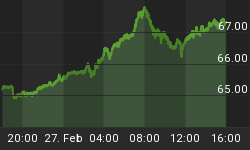The Middle East peace talks are at a deadlock. Negotiations between Israel and the Palestinians to move ahead with the plan established by the so-called Quartet - the US., U.N., EU and Russia -- have faltered and come to a complete standstill. Continuing with this inertia will have a long-term negative effect on the future of the region both from a political point of view as well as from a business perspective. With the exception of a few risk-takers, what company or business executive would be willing to invest in the Middle East once the region plunges onto the abyss amid renewed violence?
And whenever trouble brews in the Middle East it tends to spill over into other parts of the world. The risk that Mideast violence could spread to nearby Europe might have been one of the reasons that pushed Italian Prime Minister Silvio Berlusconi to say that Israel should be admitted into the European Union earlier this week. Berlusconi made the statement during an official state visit to Israel. Berlusconi, of course, is one of Israel's strongest supporters.
Regardless of that the question remains does Israel belong in Europe?
Does Israel joining the European Union make any sense? And is this proposal likely to carry any weight? The idea has been floating around for a number of years. And if Turkey feels it belongs in the EU, then why not Israel, where a large portion of the population has direct ties to Europe.
The knee-jerk reaction from much of the Arab world will most likely be to throw a temper-tantrum. There will likely be anti-Italian demonstrations, threats to boycott Italian goods (which will be short-lived given the Middle East's attraction to pasta) and in the extreme case, some maniacs will attempt to carry out terrorist acts against Italy. But anyone with an ounce of logic should jump on the Italian bandwagon. Support the initiative.
To what end? Why?
Think about it for a minute or two. What would it mean to have Israel join the EU? To begin with, the European Union has very strict rules regulating multiple aspects of how a member country should function. First of all, no prospective partner of the Brussels club can be allowed to join the European Union while it occupies territory that is not legally recognized as part of its own. Israel's adhesion into the European Union would have to be preceded by a complete withdrawal of Israeli military and civilian forces from all Palestinian territory. That would mean that before such a withdrawal can happen a peace deal will have to be reached beetween the Palestinians and the Jewish State.
Israel's admission into the European Union would mean that the highways and security roads that Palestinians are not allowed to travel on would have to disappear. It would be inadmissible to have segregated roads in the European Union. Imagine if Italy, France or Germany, for example, banned certain ethnic groups from traveling on its national highways.
The Separation Barrier (official United Nations designation) which Israel calls a "fence," and Palestinians refer to as an "Apartheid Wall;" in reality a series of segments of a wall resembling the Berlin Wall, ditches and moats, erected between Israel proper and the West Bank to keep potential terrorists out, would have to come down. It would be unimaginable for a member of the EU to maintain such a symbol of segregation. Similarly the situation regarding Gaza would have to be resolved. Again, it is unimaginable for a European country to lay siege to a neighboring territory.
But that is not all. The whole concept of the European Union, the world's largest economic and political zone, which saw the day shortly after the end of World War II, was to tie the economies of Europe's countries in such a way that war would simply become unimaginable. Nations that spent centuries fighting each other - England and France, France and Germany, Germany and its neighbors to the east, and so on and so forth - began building the foundation to make those wars a thing of the past and inconceivable in the future. And it worked. Today war between once former foes in Europe is just not possible. To be sure, there may well be disagreements between members of the EU, but the disputes are settled in the European Parliament or at the International Court of Justice in The Hague. Not on the battlefield any longer. This is an example from which the Middle East could greatly benefit.
Israel in the EU would also mean that peace with Syria would have to be attained and the occupied Golan Heights returned to its rightful owners. Going a step further, Israel would have to finalize its withdrawal from the Shebaa Farms and the village of Ghajjar in south Lebanon and find a way to make peace with Lebanon and by default, with Hezbollah.
Is any of this possible? Yes, would say the optimist in me, but with a caveat. Unilateral withdrawal from Arab lands is unrealistic and dangerous for the security of Israel. And Israel's domestic and foreign policy is driven by its security needs. So the bottom line is this: If Israel wants to become a member of the European Union, even with all the backing of the Italian prime minister, and others, it would first have to negotiate peace with its Arab neighbors. And that is a good thing.
So, Israel in the European Union? Yes, by all means, bring it on. And if Israel joins the EU, why can't Lebanon be next? With Cyprus now a member of the EU, Europe is but a 20-minute airplane ride from the Middle East.
Originally published at: http://www.oilprice.com/article-as-the-middle-east-peace-talks-hit-deadlock-talk-of-israel-joining-the-european-union-increases.html
Written by Claude Salhani for Oilprice.com who focus on Fossil Fuels, Alternative Energy, Metals, Crude Oil Price and Geopolitics To find out more visit their website at: http://www.oilprice.com















